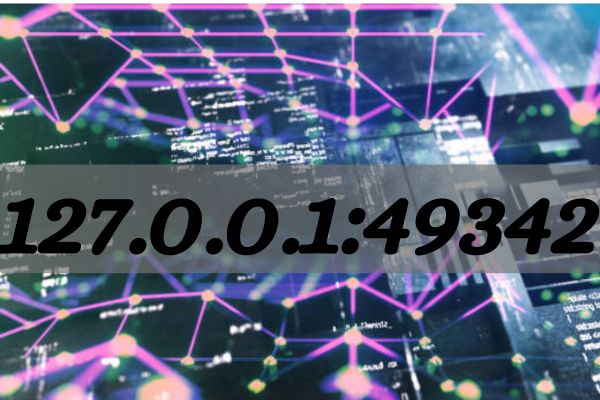In the digital world, the address “127.0.0.1:62893” might appear cryptic at first glance, but it holds significant importance in network communication and development environments. This comprehensive guide delves into what 127.0.0.1:62893 is, its applications, security implications, and common troubleshooting methods.
Understanding 127.0.0.1: What is the Loopback Address?
The IP address “127.0.0.1” is universally recognized as the loopback address in computer networking. This special address is used by a computer to communicate with itself, testing and managing its own network services. When you send data to 127.0.0.1, it never leaves your device; instead, it is looped back to the local machine. This is an essential tool for developers and network administrators to test software and network functions without transmitting data over the internet.
What Does Port 62893 Represent?
Ports are integral to managing how data is routed internally on a computer. The port number “62893” falls within the range of dynamic or private ports (49152-65535), which are not registered with any specific application and are typically used for temporary connections by applications during their execution. This flexibility makes port 62893 ideal for development purposes, where temporary and isolated environments are necessary.
Common Uses of 127.0.0.1:62893
Development and Testing
One of the primary uses of 127.0.0.1:62893 is in the development and testing of software applications. Developers configure their servers to listen on this port during the development phase to test the application in a controlled environment, ensuring that it functions correctly before deployment.
Network Troubleshooting
Network administrators utilize 127.0.0.1:62893 to test and troubleshoot the network stack on the local machine. By sending and receiving data on this port, they can diagnose issues and ensure that network services are operating correctly without external network interference.
Security Testing
Because it is isolated from external networks, using 127.0.0.1:62893 allows security professionals to test network applications for vulnerabilities in a safe environment. They can simulate attack scenarios and test security measures without the risk of compromising the actual network.
Security Implications
Isolation from External Networks
Since 127.0.0.1 does not interact with external networks, it is inherently secure from external threats. However, this does not eliminate the need for internal security measures.
Best Practices for Securing Local Services
To maintain security, applications running on 127.0.0.1:62893 should implement authentication and encryption to prevent unauthorized access. Regular security audits and monitoring are recommended to detect and mitigate potential vulnerabilities.
Troubleshooting Common Issues with 127.0.0.1:62893
Service Conflicts
If another application is using port 62893, you might encounter conflicts. It is crucial to ensure that no other services are running on this port when starting a new service.
Firewall Settings
While 127.0.0.1 is looped internally, firewall configurations can still affect applications trying to bind to port 62893. Ensuring correct firewall rules are in place is essential for smooth operation.
Connectivity Issues
Problems in the network configuration on the local machine can prevent applications from communicating via 127.0.0.1:62893. Checking the network settings and ensuring that the services are configured correctly is a necessary troubleshooting step.
How to Fix Issues with 127.0.0.1:62893
To resolve issues with 127.0.0.1:62893, first, ensure the intended service is running. Use tools like netstat or lsof to check if the port is in use. If there is a conflict, stop the conflicting service or change your application’s port configuration. Check firewall settings to ensure traffic to port 62893 is allowed, adding an exception if necessary. Verify the application’s configuration files for accuracy and consult the documentation for additional required settings. These steps should help troubleshoot and fix issues related to 127.0.0.1:62893 .
Conclusion
The address 127.0.0.1:62893 is a powerful tool for developers and network technicians. It facilitates a wide range of activities from testing, development, and troubleshooting without risking external exposure. By understanding its role and how to manage it effectively, IT professionals can enhance their network management and security protocols. As networking technologies evolve, the significance of loopback addresses and dynamic ports continues to grow, underscoring their indispensable role in modern computing environments.
FAQs About 127.0.0.1:49342
What is 127.0.0.1?
127.0.0.1 is the “localhost” IP address, used to refer to your own computer in networking. It allows applications to communicate within the same machine.
What does port 49342 signify?
Port 49342 is a specific endpoint used by a program or service to establish network communication. It is randomly assigned by the system or specified by an application.
Why am I seeing 127.0.0.1:49342 in logs?
It typically indicates a service or application running on your local machine is using this port for communication or testing purposes.
Is 127.0.0.1:49342 a security concern?
Not usually. Since 127.0.0.1 is local, external entities can’t access it. However, ensure that the application using it is secure and updated.
Can I change the port from 49342 to another?
Yes, if the application allows configuration. Check the application settings or its documentation for port customization.
